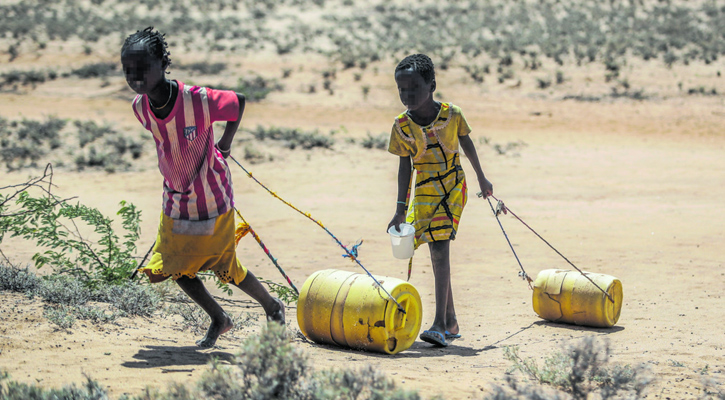A new research by Unicef has found that at least 43 million child displacements were linked to extreme weather events over the past six years, the equivalent of 20,000 children being forced to abandon their homes and school every single day.
According to the first-of-its-kind analysis by Unicef and the Internal Displacement Monitoring Centre (IDMC), floods and storms accounted for 95% of recorded child displacement between 2016 and 2021. The rest – more than 2 million children – were displaced by wildfires and drought.
Displacement is traumatic and frightening regardless of age, but the consequences can be especially disruptive and damaging for children who may miss out on education, life-saving vaccines and social networks.
Reacting, Unicef executive director Catherine Russell said “It is terrifying for any child when a ferocious wildfire, storm or flood barrels into their community,”. “For those forced to flee, the fear and impact can be especially devastating, with worry of whether they will return home, resume school or be forced to move again.”
The research showed that China, the Philippines and India dominate with 22.3 million child displacements – just over half the total number – which the report attributes to the countries’ geographical exposure to extreme weather such as monsoon rains and cyclones and large child populations, as well as increased pre-emptive evacuations.
Read also: Report: Global carbon emissions from electric power may peak this year
It also showed that the greatest proportion of child displacements were in small island states – many of which are facing existential threats due to the climate emergency – and in the Horn of Africa where conflict, extreme weather, poor governance and resource exploitation overlap.
According to the report’ findings, a staggering 76% of children were displaced in the small Caribbean island of Dominica, which was devastated by Hurricane Maria in 2017, a category 4 Atlantic storm that damaged 90% of the island’s housing stock. Storms also led to more than a quarter of children being displaced in Cuba, Vanuatu, Saint Martin and the Northern Mariana Islands.
Somalia and South Sudan recorded the most child displacements due to floods, affecting 12% and 11% of the child population respectively.
Children Displaced in a Changing Climate is the first global analysis of the children driven from their homes due to floods, storms, droughts and wildfires, and comes as weather-related disasters are becoming more intense, destructive and unpredictable due to fossil-fuel driven global heating.
The report’s stark numbers are almost certainly an undercount due to major gaps in reporting drought and slow onset climate impacts such as rising sea level, desertification and rising temperatures.
“This is absolutely a conservative estimate, and possibly just the tip of the iceberg for some climate impacts,” said Verena Knaus, the Unicef lead on global migration and displacement. “Climate is the fastest-growing driver of child displacement yet most policies and discussions about climate finance fail to consider or prioritize children.”
Story was adapted from the Guardian.
